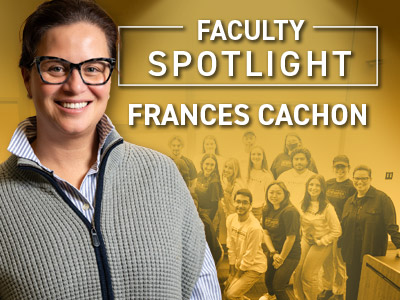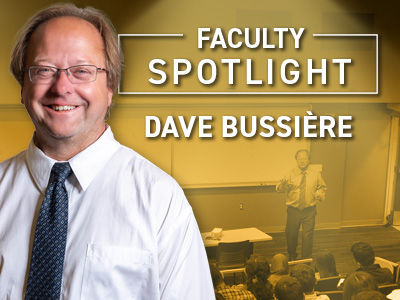Learning the Hard Truths of Colonial Law
Beverly Jacobs knew she wanted to be a lawyer in high school, but it wasn’t until years later that circumstances guided her to pursue law school.
Jacobs is Mohawk from Six Nations Grand River Territory near Brantford. She went to school in her community until she had to go to high school off reserve, which she did in Hagersville, and then Hamilton. In Grade 11, she realized she wanted to be a lawyer, but her guidance counselor wasn’t so supportive, telling her she wasn’t smart enough to be a lawyer.
After having a baby right after high school, she decided to go to Mohawk College to study to become a legal secretary. Her baby was four months old when she started. Upon graduation, she started working at a corporate law firm in Hamilton, but found the job monotonous. To help break up the monotony over the years she worked at different law firms, with different specialties, gaining insight into different aspects of the law in the process.
After working in law firms for about 7 years, two things became the impetus for Jacobs to pursue a law degree: the death of her mother, and the Oka Crisis, also known as the Siege at Kanesatake.
The Siege at Kanesatake was a land dispute between a the Mohawk peoples of Kanesatake and the town of Oka, Quebec, which began on July 11, 1990, and lasted 78 days and involved an armed intervention by Canadian Armed Forces.
“When my mother died in December 1989, it was devastating. She was a strong Mohawk woman but the impacts of her mother attending the oldest residential school, The Mohawk Institute, wreaked havoc on her health. And as a person from the Mohawk Nation, knowing about the Canadian Army coming in on Mohawk territory, firing weapons against our people, over a golf course, this was a catalyst to my decision that life is too short and that I really wanted to do something to help our people. Applying to law school immediately after these traumatic experiences really made me want to see what I could do with a better knowledge of Canadian law,” Jacobs said.
Eventually the standoff ended, but Jacobs said the crisis was a provocation heard around the world. “It brought global attention to Canadian and Indigenous relations and issues, and it really created unity amongst Indigenous peoples on Turtle Island and around the world.”
Those interested in learning more about the Kanasatake Resistance, Jacobs said, should watch “Kanehsatake: 270 Years of Resistance,” by Alanis Obomsawin, or learn from her friend, and Mohawk activist, Ellen Gabriel, who was on the front lines in Kanasatake.
She applied to, and was accepted, into the University of Windsor law program after successfully completing the Pre-Law Course for Native Peoples at the University of Saskatchewan College of Law. The eight-week pre-law course assists Indigenous students with developing the skills essential for law school success. She graduated this course with an award for the highest average. Once Jacobs started at Windsor’s law program, she found what she was learning difficult issues to deal with. “It was hard as an Indigenous person learning how colonial law was used as a tool to erase your people.”
She said it was in contrast to how she grew up. “I was raised traditionally, meaning I attended our longhouse ceremonies. I was raised with chiefs and clan mothers and taught very strongly about who I am, where I come from, self-determination, and that we’re very strong people. That’s how I was raised.”
She said it made her angry to learn how European settlers created laws to claim territory and extinguish the lives of Indigenous peoples. “I learned about property law and conquest, about the doctrine of discovery that was used to steal our land, how there was no implementation of treaties, and no recognition of nation-to-nation relationships based on treaty relationships with Canada.”
In some cases, she was educating as she was learning. She said she had a constitutional law professor who said there were no Indigenous communities in Quebec, and this was shortly after the Oka Crisis. “I had to basically put my hand up in the middle of class in first year law school and tell him he was wrong. I’m sure these people don’t like being challenged or being told they’re wrong, but that’s what I had to do, and what I’m still doing to this day.”
Despite everything, she said she was able to build relationships with the faculty and that they were very supportive of her, allowing her to bring her daughter into classrooms with her. “She came to school a lot with me and sat in the classroom while I was in class. Later, when others asked my daughter what she wanted to do, whether she was going to be a lawyer like her mom, she said ‘no, I was already in law school.’”
Representing Indigenous Peoples
Rather than start articling upon graduating, she enrolled in the Master of Laws program at the University of Saskatchewan. She had been spending her summer breaks there as a teaching assistant for the Summer Pre-Law Course, which introduced her to teaching, something she grew an interest in pursuing. “I liked teaching a lot. I would also come back to my own community, teaching at Mohawk College with just Indigenous students that were all older than me. It was fun.”
Upon graduating, she started teaching sessionally wherever she could, and applying for full-time teaching positions, but never getting short-listed. She also started a consulting business, working with Indigenous organizations and clients across the country.
One of her clients was the Aboriginal Legal Services in Toronto. She was assisting with research about Bill C-31 (amendments to the Indian Act) and its impact on Indigenous women and their communities. She said she met a trailblazing constitutional and human rights lawyer, Mary Eberts, while doing this work in 2002 and began articling with her. Mary Eberts mentored her and Jacobs stated, “Mary taught me so much, specifically she taught me how to be a strong and strategic advocate. We’ve continued to work with each other over the years and I am proud to call her a really close friend today.”
Jacobs also worked with another one of her clients, Amnesty International, on a report called the Stolen Sisters, about missing and murdered Indigenous women and girls. “I met with, and developed relationships with, families who had suffered as a result of Indigenous women who were murdered and missing from across the country. And that led me to getting involved in Indigenous politics.”
This led to Jacobs becoming the president of the Native Women’s Association of Canada from 2004 to 2009. “We were advocating for our people on a national and international stage and focusing on all kinds of issues regarding Indigenous women, including political advocacy, the environment, justice, corrections, and health, to name a few.”
The job meant traveling the world. “It was a lot of global work and UN work as well. Meeting with different Indigenous communities and Indigenous women around the world who were dealing with the same issues. I attended five years of UN forums at that time. It was huge. It was really amazing work representing Indigenous women in Canada.”
After her term as president was done in 2009, Jacobs began to do her PhD at the University of Calgary. “There was funding attached to my PhD program, and I was like, okay, that’s what I will do next. It actually ended up being easier than the political work I was doing 24-7.”
Around the time she was finishing her PhD, a couple of full-time professor positions became available, one of them being at the University of Windsor. She applied and was welcomed back to Windsor Law in July 2017.
Teaching Indigenous Legal Orders
For Jacobs, it is very important for students to have a voice in the classroom. “Anytime I’m teaching, I always make sure student’s feedback, questions, or their own opinion about the subject are heard. I always ensure that everyone has a chance to speak.”
She said most students have limited knowledge and understanding of Indigenous peoples. “So tell me…why is it that people were not educated about our people? It was intentional. It was intentional because the whole purpose was to erase us as a people. So why would you educate anyone about our people?”
She is pleased to have the opportunity to share her peoples’ knowledge. Currently, while taking on the inaugural position as Senior Advisor to the President on Indigenous Relations and Outreach, she is teaching Indigenous Legal Orders, a mandatory first-year course exposing students to another form of law. “I teach about Haudenosaunee law. It’s a different way of learning about who we are as a people – our practices, ceremony, language, and all the principles of our laws.”
The feedback to Windsor Law’s Indigenous Legal Orders course has been very positive, so much so she is looking into creating an upper year Indigenous law course as well. “The students are really aware and supportive and want to know more and have asked for upper year courses.” She will also be implementing a Haudenosaunee Law Camp where the teachings happen in community and on the land.
Over the years, Jacobs earned many awards and accolades, too many to relay here, but of note she was inducted as a Member of the Order of Canada in 2018, and received a Governor General’s Award in 2008. She also received a teaching award in 2022 from the Students’ Law Society at the University of Windsor. Not bad for someone who was deemed not smart enough to be a lawyer.
Peter brings extensive expertise in multimedia to support CTL programs, website design, and special events. With around 25 years of experience in graphic and web design, he brings a wealth of knowledge to the table. He is a graduate of Print Journalism and Digital Media from Conestoga College, and and Communication, Media and Film from the University of Windsor.










Comments